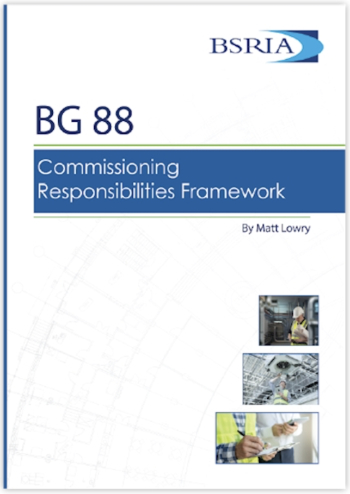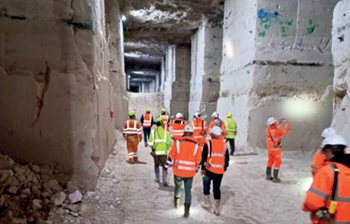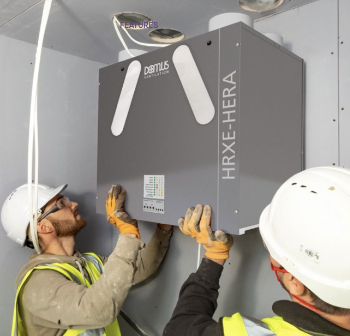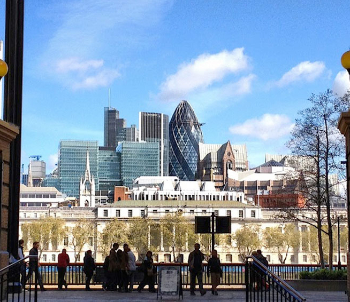Disputes Resolution - Section 10 of the Party Wall Act
[edit] Section 10 of the Party Wall Act - Resolution of disputes
"Section 10 of the Party Wall Act deals with the resolution of disputes. In this particular instance, both parties can agree on the appointment of one surveyor. That is a step to be recommended, particularly for households carrying out small works. Alternatively, the parties may each appoint a surveyor. These in turn will nominate a third surveyor who is called in to adjudicate only in a few instances of sustained disagreement. Between them, they will produce an agreement or award. Normally a party wall surveyor or third surveyor cannot be removed, but the Bill make provisions if surveyors are unwilling or unable to act.
The duty of party wall surveyors is quasi-arbitral. Once appointed they have a duty to act properly in the interest of both parties as statutory surveyors, which is a most important safeguard. Experience indicates that the great majority of disputed cases are dealt with by agreement between surveyors. The building owner generally meets the cost of the adjoining owner’s surveyor. But that is not a licence to charge excessive fees and there are generally prior agreements on charges.
Safeguards are provided where a party to the dispute neglects to appoint a surveyor, in which case the other party may appoint one on their behalf. There is a fallback provision whereby the local authority makes the appointment of a third surveyor on the application of one surveyor if there is a breakdown in the normal procedures.
Section 10(1) provides that where a dispute actually arises between a building owner and an adjoining owner or one is deemed to have arisen as a result of one or the other failing to comply with any of the provisions under the Act, that the parties will first try to appoint a joint surveyor, the failure of which will result in a surveyor being appointed by each of the parties individually. If the surveyors are unable to resolve the dispute then a third surveyor will be agreed upon and appointed by the acting surveyors.
Section 10(2) provides that all surveyors must be appointed in writing and cannot be removed by either party unless they fall under one of the provisions of subsection (3).
Section 10(3) provides that new proceedings to settle a dispute shall prevail in circumstances where an agreed surveyor; refuses to act or fails to act within 10 days of being served with a request from either party; deems themselves incapable of acting or, dies before a dispute is settled.
Section 10(4) provides that a party who fails to comply with section 10(1) for a period of 10 days beginning with the day on which the other party serves a request to appoint a surveyor, can have a surveyor appointed on their behalf by the other party.
Section 10(5) provides that a party who appointed a surveyor who is for the reasons stated in subsection (3) is unable to act, may appoint another surveyor.
Section 10(6) provides that a surveyor who was appointed under subsections (1), (4) or (5) refuses to act effectively, then the other party’s surveyor may proceed to act on behalf of both parties as an agreed surveyor.
Section 10(7) provides that if a surveyor appointed under subsections (1), (4) or (5) neglects to act effectively within 10 days of being served with a request by a party, the other parties surveyor may proceed in respect of the subject matter requested to be dealt with as if they are an agreed surveyor.
Section 10(8) provides that if a surveyor fails or neglects to appoint a third surveyor within 10 days of the other parties surveyor serving a request on them, the appointing officer or in some cases the Secretary of State may on the application of either surveyor select a third surveyor who shall have the same powers as if the appointment was under subsections (1) or (9).
Section 10(9) provides remedies for the refusal, neglect or death of a third surveyor to act in a dispute. In any of these circumstances, the parties surveyors may select another third surveyor to act.
Section 10(10) provides that the acting surveyor(s) agreed or otherwise shall settle the dispute by way of making a party wall agreement with regard to any dispute between a building owner and an adjoining owner that has arisen from any of the proposed works being carried out under the provisions of the Act.
Section 10(11) provides that either of the parties may call in a third surveyor who will resolve the dispute and make an agreement.
Section 10(12) provides what an agreement is able to determine whether the owner(s) have the right to execute the proposed works, the time and manner in which it may be carried out and any other matter that is incidental to the dispute including the surveyor’s costs. However, any time limits for service of notices must have elapsed before any works are able to commence.
Section 10(13) provides for the reasonable costs that a surveyor is able to charge for their services. This subsection further provides that the surveyor(s) have the power to determine who is to pay such costs.
Section 10(14) provides that the appointed surveyor(s) have a duty to serve any agreement made on each of the parties.
Section 10(15) provides that where an agreement is made by a third surveyor, once the bill is settled the third surveyor shall serve it on the parties surveyors who in turn will serve it on the parties.
Section 10(16) provides that the agreement is conclusive and may only be question In accordance with the provision set out in subsection (17)
Section 10(17) provides that an agreement may only be appealed within a period of 14 days of receipt of service to a county court. The county court may rescind the agreement or vary it. The court may also make an agreement for costs.
[edit] Related articles on Designing Buildings
- 10(4) Party Wall Surveyor Appointments.
- Adjoining buildings definition.
- Adjoining owner.
- Construction covered by the Party Wall Act of 1996.
- Counter Notice.
- Institute of party wall surveyors.
- Line of junction notice.
- Neighbour dispute.
- Party structure notice.
- Party wall act.
- Party wall notice.
- Party wall surveyor.
- Preventing wall collapse.
- Responsibility for boundary features.
- Right of entry.
- Right of support.
- Right to access land.
- Security for expenses under the Party Wall Act.
- Three party wall notice responses.
- Trespass.
- What approvals are needed before construction begins.
- Who Pays for Party Wall Surveyor's Fees?
Featured articles and news
Commissioning Responsibilities Framework BG 88/2025
BSRIA guidance on establishing clear roles and responsibilities for commissioning tasks.
An architectural movement to love or hate.
Don’t take British stone for granted
It won’t survive on supplying the heritage sector alone.
The remarkable story of a Highland architect.
The Constructing Excellence Value Toolkit
Driving value-based decision making in construction.
Meet CIOB event in Northern Ireland
Inspiring the next generation of construction talent.
Reasons for using MVHR systems
6 reasons for a whole-house approach to ventilation.
Supplementary Planning Documents, a reminder
As used by the City of London to introduce a Retrofit first policy.
The what, how, why and when of deposit return schemes
Circular economy steps for plastic bottles and cans in England and Northern Ireland draws.
Join forces and share Building Safety knowledge in 2025
Why and how to contribute to the Building Safety Wiki.
Reporting on Payment Practices and Performance Regs
Approved amendment coming into effect 1 March 2025.
A new CIOB TIS on discharging CDM 2015 duties
Practical steps that can be undertaken in the Management of Contractors to discharge the relevant CDM 2015 duties.
Planning for homes by transport hubs
Next steps for infrastructure following the updated NPPF.
Access, history and Ty unnos.
The world’s first publicly funded civic park.
Exploring permitted development rights for change of use
Discussing lesser known classes M, N, P, PA and L.
CIOB Art of Building photo contest 2024 winners
Fresco School by Roman Robroek and Once Upon a Pass by Liam Man.























